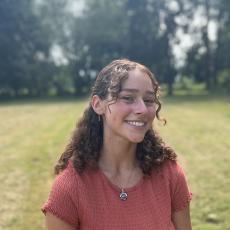
This summer I worked with Professor Christine Hatch to assist with monitoring of multiple wetland restoration sites in southeastern Massachusetts. I got valuable hands-on experience with piezometer installation, retrieval of data loggers, as well as water sample collection and processing. Throughout the summer, I gained insight into the multi-faceted process of restoration. For my project, I dialed into charcoal analysis under instruction of Professor Dana MacDonald. I spent time in the lab extracting, processing, and quantifying charcoal within 100 contiguous samples of a peat core extracted from Foothills Preserve in Plymouth, MA. This site in particular was once a natural Atlantic White Cedar (AWC) swamp, which is a rare and vulnerable ecosystem, before commercial cranberry cultivation resulted in wetland degradation; currently, restoration efforts are in place. The purpose of my project was to reconstruct past fire history of southeastern Massachusetts during the Holocene epoch. I learned how to assess the charcoal count data to determine fire frequency and severity throughout the timespan of the core, which gives insight on how fire patterns in this area have changed over time. Overlying this data with past climate and human settlement studies provides possible explanations for shifts in fire behavior trends. Next steps include doing pollen work on the core to see how certain plant species responded to fire disturbances in the past. This information is valuable because it can guide how this land is managed in the future. I am extremely grateful to the CAFE program, Mass Grange, Christine Hatch, and Dana MacDonald for providing the resources and guidance that allowed me to complete this project.
